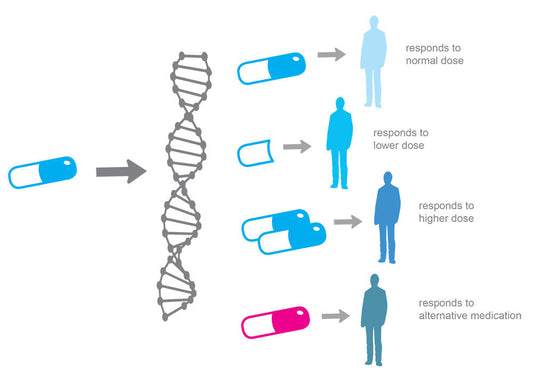In Fagron NutriGen™, Understanding Refined Carbohydrate Sensitivity: What You Need to Know
Are you familiar with the term "refined carbohydrate sensitivity"? If not, don't worry, you're not alone. It's a relatively new term in the world of nutrition, but it's an important one. In Fagron NutriGen™, it's one of the categories that is evaluated to provide personalized nutritional recommendations. In this article, we'll take a closer look at what refined carbohydrate sensitivity means and what you can do about it.
What are Refined Carbohydrates?
Before we dive into refined carbohydrate sensitivity, let's first define what refined carbohydrates are. Refined carbohydrates are sugars and starches that have been processed to remove fiber and other nutrients. This process results in a finer texture, longer shelf life, and a sweeter taste. Examples of refined carbohydrates include white flour, white rice, sugar, and corn syrup. These types of carbohydrates are found in many processed foods such as baked goods, sugary drinks, and snack foods.
What is Refined Carbohydrate Sensitivity?
Refined carbohydrate sensitivity refers to a person's ability to metabolize and process refined carbohydrates. Some people are more sensitive to refined carbohydrates than others, which means that their bodies may not be able to handle these types of carbohydrates as well. When people with refined carbohydrate sensitivity consume refined carbohydrates, their bodies may have a harder time controlling blood sugar levels. This can lead to insulin resistance, weight gain, and an increased risk for chronic diseases such as type 2 diabetes.
How to Reduce the Effects of Refined Carbohydrates?
If you have refined carbohydrate sensitivity, there are steps you can take to reduce the effects of refined carbohydrates on your body. Here are some recommendations:
-
Eat a balanced diet: Eating a balanced diet that includes a variety of foods such as fruits, vegetables, lean proteins, and healthy fats can help keep blood sugar levels stable and reduce the impact of refined carbohydrates.
-
Choose whole grains: When selecting grains, choose whole grains over refined grains. Whole grains contain more fiber, which slows down the absorption of glucose into the bloodstream, resulting in a more stable blood sugar level.
-
Avoid sugary drinks: Sugary drinks, such as soda and juice, are high in refined carbohydrates and can quickly raise blood sugar levels.
-
Monitor carbohydrate intake: Monitor your carbohydrate intake and limit the consumption of high glycemic index foods, such as white bread, pasta, and rice.
-
Consult with a nutritionist: Consult with a registered nutritionist or dietician who can help you develop a personalized nutrition plan that is tailored to your specific needs and goals.
FAQs
-
Is it necessary to eliminate all refined carbohydrates from my diet if I have refined carbohydrate sensitivity? No, it is not necessary to eliminate all refined carbohydrates from your diet. However, it is recommended to limit the intake of these types of carbohydrates and choose whole grain options when possible.
-
Can refined carbohydrate sensitivity be tested? Yes, there are tests available to determine if you have refined carbohydrate sensitivity. These tests measure your body's response to specific types of carbohydrates and can help you develop a personalized nutrition plan.
Conclusion
In Fagron NutriGen™, refined carbohydrate sensitivity is one of the categories evaluated to provide personalized nutritional recommendations. Refined carbohydrate sensitivity refers to a person's ability to metabolize and process refined carbohydrates. If you have refined carbohydrate sensitivity, it's important to monitor your carbohydrate intake, choose whole grains, and eat a balanced diet to help keep blood sugar levels stable and reduce the impact of refined carbohydrates on your body. Remember, consulting with a registered nutritionist or dietician can help you develop a personalized nutrition plan that is tailored to your specific needs


















